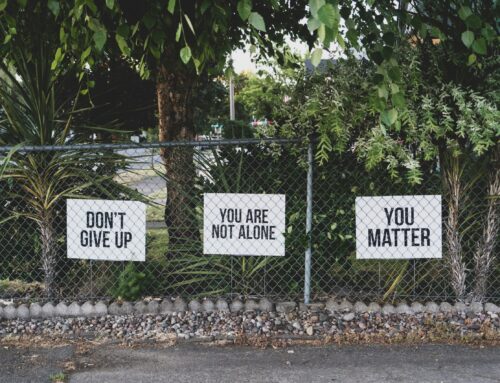Based on data collected by the National Institute of Mental Health in 2016, nearly one in five adults (44.7 million) lives with a mental health related condition in the United States. These Americans need help dealing with problems and regulating emotions that feel beyond the scope of their control – losing a job, death of family/friend, starting or ending relationships, depression, anxiety, burnout, or substance abuse/misuse. However, of those 44.7 million adults, only 9.2 million (43.1%) received mental health treatment. While some adults are capable of managing these stressors on their own, others need more help.
If you find yourself needing more support, therapy may be the right choice for you.
Psychotherapy or therapy can help you to learn to live a healthier, productive, more fulfilling life.
Consider therapy if…
- You feel sad or anxious most of the day nearly everyday and it’s affecting your work and/or relationships.
- You feel a sense of hopelessness, isolation, or sadness, and your relationships feel strained.
- You find it difficult to complete everyday tasks such as finishing work or school assignments.
- You worry over thoughts and problems frequently or always expect the worst-case scenario to come true.
- You are withdrawing from things that used to make you happy and you are using negative coping skills to manage difficult emotions (e.g. drinking too much or misuing or abusing drugs).
- You are concerned about the thoughts, feelings, and actions that are negatively impacting your quality of life.
- You’re going through a big change in your life and want more support.
- You have been putting off talking to someone.
How to Find the Right Match
Finding the right therapist is important. Most clinicians would agree that your level of comfort with your therapist is a critical ingredient for positive therapy outcomes. The relationship between the therapist and the client, also known as the therapeutic alliance, can account for up to 80% of what makes therapy work. This is typically seen in the way in which the therapist exhibits warmth, empathy, and respect for a client. Choose someone that makes you feel comfortable and at ease.
With the right fit in mind, reflect on the following questions when meeting with your therapist for the first few sessions:
- Does s/he make you feel accepted?
- Do you feel treated like an equal?
- Do you leave the session feeling more hopeful?
- Do you feel at ease with them?
- Is s/he honest and sincere?
- Does s/he understand your background and culture, if relevant to treatment?
- Do you feel respected?
- Do you feel a balance between professionalism and warmth?
How Will You Know if Therapy is Working?
At the start of therapy, make sure to establish goals for treatment with your therapist. You might be working on gaining control over a fear that is interfering with your daily functioning (e.g. fear of crowded spaces) or learning to regulate feelings of isolation and hopelessness that are associated with depression. Regardless of your goal, it is important to discuss it with your therapist. Remember that certain goals will require more time to successfully accomplish compared to other goals. Therapy should also help you to increase motivation for implementing healthy exercise, nutrition and sleep habits.
If you start to feel a sense of hope, increased in motivation, or a feeling of relief, these are good signs. These changes in yourself can be an indicator that you’re making connections with your thoughts, emotions, and behaviors, implementing changes you desire and starting to gain a better understanding of yourself.




